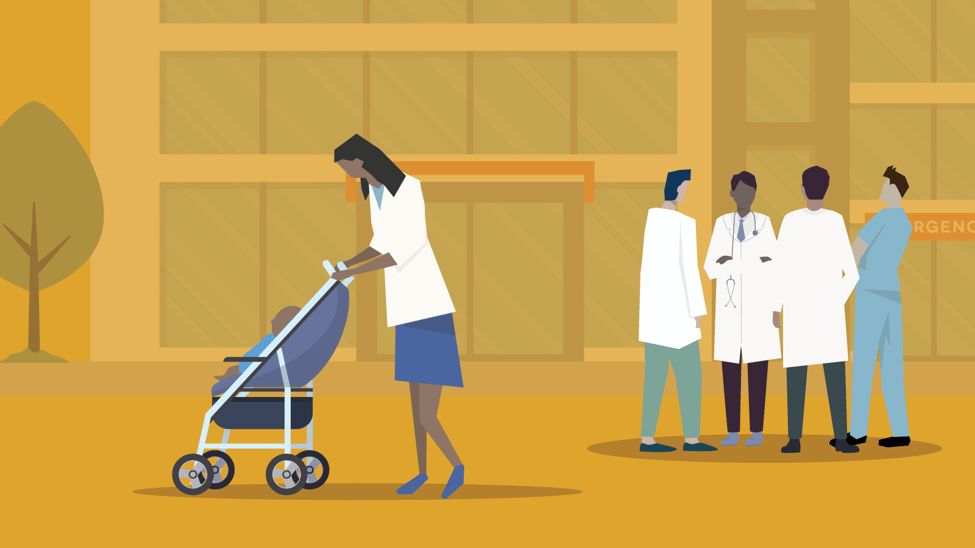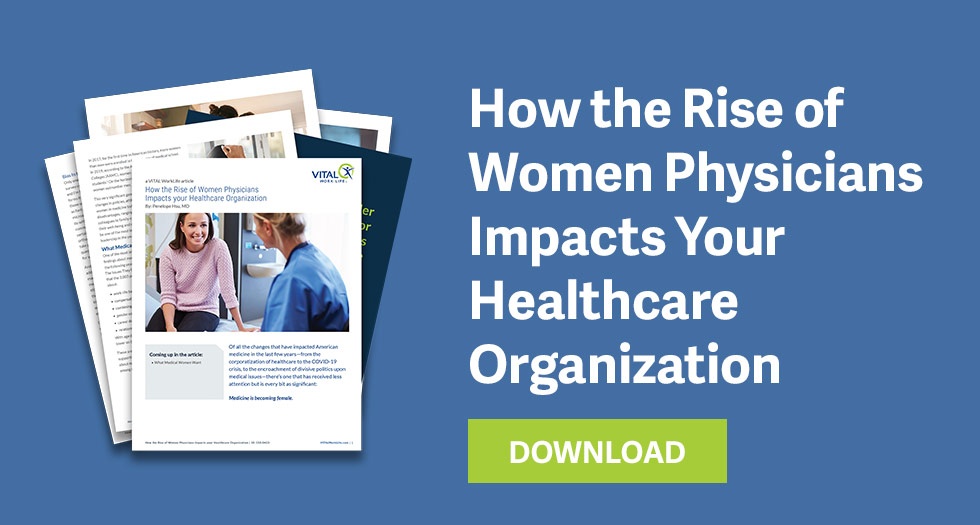When Madeleine “Maddie” Lee, MD decided to become a general surgeon, it was because she knew she would enjoy the variety of soft-tissue procedures she would be called upon to do—from excising skin lesions to gall bladder removals to hernia repairs. She liked working closely with internists and family medicine physicians and she valued the time she spent with patients before and after surgery—explaining what they could expect in the OR and after.
As she hoped, her first several years as an attending at Methodist Hospital gave her everything she was expecting—and more. Days filled with variety and with the deep satisfaction of making an immediate difference to a suffering patient. There were challenges, of course. When she was hired, she was quoted a salary figure and was told it was non-negotiable. Dr. Shilpa Raganathan, the surgeon who mentored her during her residency, mentioned males always negotiated, so Dr. Lee did so too—not without a few nerves—and she received a counteroffer that was a modest increase in salary. Not to mention there was the issue of finding the right footwear to support long stretches standing; the endless coding to feed the EHR; the occasional patient or family member who made it clear they would prefer a “real doctor”, meaning a male.
And there were still instances when some colleagues forgot to address her as “Doctor” plus surname in formal settings.

In short, medicine was, in turn, exhilarating, frustrating, rewarding and maddening.
The very same thing could be said for another life-changing career upon which Dr. Lee embarked—parenthood.
She married Carl, the Beethoven-loving lawyer her friends were nearly as enthusiastic about as she was; the pair bought a compact but architecturally significant mid-century house in a nearby suburb; and they welcomed Josephine into the world.
She had long supposed her medical training would reduce her anxiety at the prospect of nurturing a young life, but that idea went out the window the day she brought the baby home. Her heart was brimming with love and her stomach was in knots. The only “medicine” for her worry was the certainty that she would make any sacrifice and bear any burden to keep her daughter safe and happy.
It wasn’t long after her maternity leave that she discovered the first major sacrifice she would need to make: less time at work. She was ambitious, eager to prove herself, at war with sexist assumptions about female practitioners—but she was Josephine’s primary caregiver too. She balked at the thought of turning Josephine over to a nearly full-time nanny—even if they could afford it, which they couldn’t, it would mean that she would struggle to get to know her daughter. Carl’s firm was embroiled in long-term litigation, and he typically came home well after sunset; both of their extended families lived far away. And as wonderful as Carl was, Dr. Lee could tell he wasn’t a natural in the child-care department; he simply hadn’t been taught to be.
So Dr. Lee went to Dr. Phil Aaron, surgery department head, to ask about adjusting her schedule. Dr. Aaron sent her to the hospital’s operational director, Tim Wicks.
“I hear what you’re saying and what you need,” Wicks said. “but I think you’d be wise to think twice about it.”
“I beg your pardon?” said Dr. Lee.
“No, I really get it,” he said, opening his hands wide. “But I think, as a new attending here, you want to keep your options open. You don’t want to get the reputation of being a part-timer. I don’t think that’s the direction you want your career to go.”
“But I—"
“It cuts off options, you know?”
This uncomfortable conversation went on for fifteen more minutes and was the main reason Dr. Lee decided she needed some female perspective and guidance. Luckily, Methodist had a peer-mentor program, and she was able to sit down with Dr. Alice Egonu to obtain some clarity.
“The interaction made me realize women truly can’t have it all,” she told the coach. “It basically told me I don’t get to be a mother and a doctor with a future. And that caring for my daughter is an automatic ticket to the second tier around here.”
Dr. Egonu drew a long breath. “I wish that interaction would have been better,” she said. “But it’s an attitude thing—part of that old-school medical culture that’s still alive and well. If you aren’t in it to the exclusion of almost anything else, you’re not ‘serious.’ I could call it a very male thing, but even some of the men have come to realize it’s too one-dimensional. Still, it hangs on. I think it will hang on ‘til we have more women setting policy and running things day-to-day.”
“But what can I do, Alice? Right now?”
Dr. Egonu helped her make some important distinctions, like the one between the things she couldn’t do anything about (the attitudes they talked about) and what she could do on her own behalf—such as reducing her hours to some extent while taking on the kinds of challenging cases that get noticed.
“And another way to get noticed and make the case for your leadership potential,” said Dr. Egonu, “is to be a leader now. Mentor the female residents. Get known as a go-to.”
“That’s a great idea, and it’s a lot of work too,” she said.
“That’s the way it is for us until there’s a real change of culture.”
“Well, okay,” said Dr. Lee. “Like it says on the internet, be part of the change you want to see in the world. I think I can give it a shot.”
The story continues in part three, when we see Dr. Lee five years later, striving for a leadership role and her ambitions to champion other novice female physicians in the organization.
Download our article How the Rise of Women Physicians Impacts your Healthcare Organization to learn more about this rising demographic of practitioners and how your organization can best support their greatest concerns.



